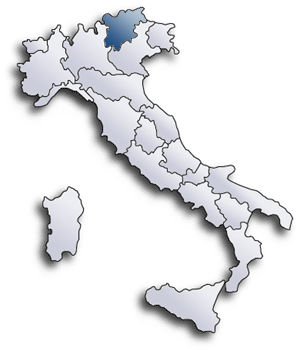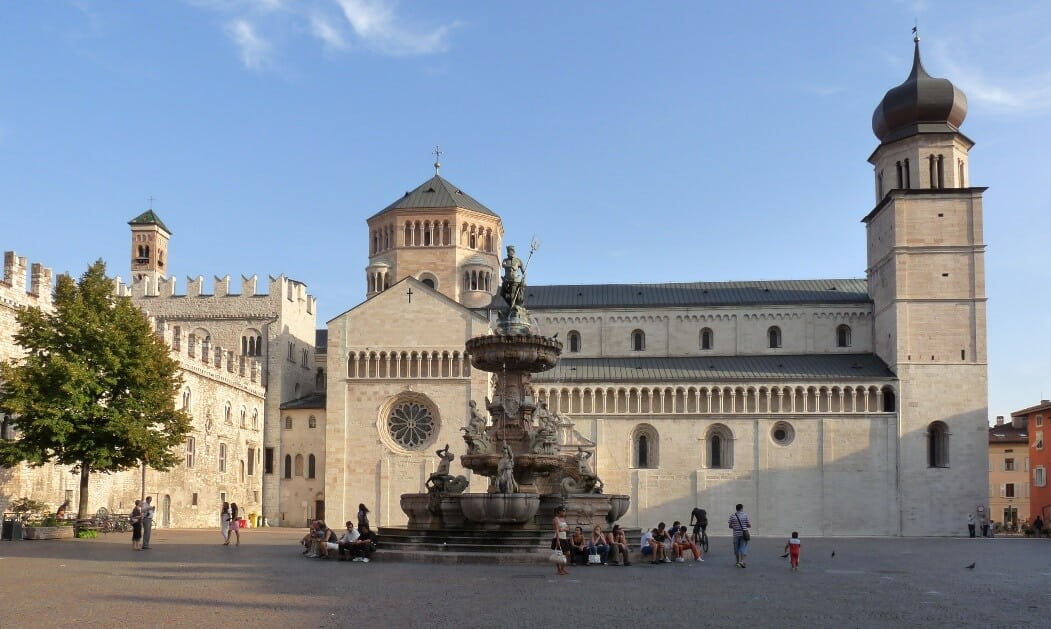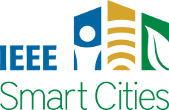The IEEE Smart Cities Initiative in Trento, Italy
The IEEE Smart Cities Initiative in Trento, Italy
Dario Petri

The Trentino-Alto Adige/Südtirol Region
This contribution briefly describes the goals of the IEEE Smart Cities Initiative in the city of Trento, Italy. The initiative is focused on quality of life through active and aware engagement of citizens, enabled by big data and open data technologies. Five main domains of application have been identified: e-Government, Health and Wellbeing, Energy Efficiency, Integrated Tourism Services and Mobility.
Trento is a medium-size Italian town of approximately 116,000 inhabitants located in Trentino-Alto Adige/Südtirol, among the valleys leading from the Brenner Pass to the Dolomites, Garda Lake, Verona and Venice. Trento is a lively, cosmopolitan city, with highly developed and organized modern social services, committed to combine smart development and innovation with the typical charm of an alpine town with valuable historical and cultural heritage. Trento is often ranked in the very first position among Italian cities for quality of life, standard of living, and business and job opportunities.
The local economy is characterized by a modern service sector as well as by a consolidated public-private partnership – as evidenced by the presence of a well-ranked university and various excellent research centers (the Fondazione Bruno Kessler and the Fondazione Edmund Mach, among others). Moreover, Trento is a Node of the European Institute for Innovation and Technology (EIT ICT Labs). This is a strategic initiative aimed at driving European leadership in ICT (Information and Communications Technologies) innovation for economic growth and quality of life and one of its eight application domains is focused on smart cities.
In May 2014, the Municipality of Trento applied to the “IEEE Smart Cities Initiative” with the support of the University of Trento, the innovation center Trento Rise and the IEEE Italy Section. The initiative is aimed at selecting 10 cities all around the world to collaborate with IEEE experts to explore the issues and address what is needed for their evolution as a smart city.
The project presented by the Municipality of Trento was focused on “quality of life” through active and aware engagement and participation of citizens. Such concept is intended to foster not only the economic growth as a unique development paradigm (despite being still a fundamental aspect), but also the social welfare, sustainable urban interventions and respect for diversity, also through advanced and innovative technological services.
The quality of the project presented by the Municipality of Trento was recognized by the IEEE Smart Cities Initiative selection process. Indeed, according to Gilles Betis, chair of the Initiative, selecting the winner projects was a difficult challenge due to the impressive number of applications received. Finally, the city of Trento, in Italy, and the city of Wuxi, in China, were selected because they provided compelling evidence that they are particularly well positioned to utilize the resources offered through the Initiative. Also, they demonstrated plans to invest their own human and financial capital into the project, providing commitment to improve the quality of life of their citizens.

Trento: A view of town center (in the background, the Duomo, one of the locations of the Council of Trento (1545–1563) which gave rise to the Counter-Reformation)
“Being selected to participate in the IEEE Smart Cities Initiative is an honor and collaborating with such an impressive community of experts will be of great benefit to Trento, which has always been careful to its citizens’ needs,” said Mrs. Chiara Morandini, general manager of the Trento Municipality. “This collaboration will nicely improve our existing political and operational strategy for the ‘quality of life’ concept. It will stimulate economic growth, improve social welfare, ensure sustainable urban services and provide access to advanced technological innovations to create a pleasant city lifestyle and a more efficient community.”
The initiative proposed by Trento is well aligned with the emerging trends in Big Data and Open Data technologies. Indeed, the Municipality believes that a greater involvement of citizens can be achieved through a territorial Open Data framework upon which a variety of applications can be developed and data provided by the citizens can be accrued.
In particular, the concept of social data generation (i.e. open data collection, cleaning and publication for general public administration and better service offered to citizens and businesses) is at the core of the smart city project because it involves each citizen, thus creating a sense of belonging to a community that directly contribute to shape its future environment.
As far as the domains of application are concerned, the project of the municipality of Trento identifies the following five main thematic areas: e-Government, Health and Wellbeing, Energy Efficiency, Integrated Tourism Services and Mobility.
In fact, over the last 50 years the Municipality of Trento has been active in protecting the environment, improving the energy efficiency, reducing the greenhouse gas emissions, fostering health, wellbeing and tourism through forward looking policy regulations and initiatives set out in its General Programmatic Plan. The latter represents the main document regulating the administrative life of Municipality through the definition of priorities and policies for the different public administration departments.
The participation of Trento in the IEEE Smart Cities Initiative comprises an inaugural workshop, which will take place on 10-12th December 2014, the development of White Papers and of MOOCs (Massive Open Online Courses) on the selected areas, support PhD or Master students, and the organization of an international conference on smart cities.
The achieved outcomes will be freely accessible online for the benefit of all cities in the world. Also best practices, lessons learned and other developed ideas will be shared with other cities involved in the Initiative or to be invited to collaborate, so supporting decisions towards additional smartness.
The Project team of the “IEEE Smart Cities Initiative Trento”
 Dario Petri is a Full Professor with the Department of Industrial Engineering at the University of Trento, Italy. Dr. Petri is currently chairing the Italian Association of Electrical and Electronic Measurements (GMEE). From 2012 to 2014, he chaired the IEEE Italy Section. Dr. Petri has been the VP for Conferences of IEEE Instrumentation and Measurement Society from 2011 to 2013, and is the VP for Finance of the same Society since 2013. He is a member of the IEEE Smart City Steering Committee since 2014. Over his research career, he has been author of more than 250 papers published in international journals or in proceedings of peer reviewed international conferences.
Dario Petri is a Full Professor with the Department of Industrial Engineering at the University of Trento, Italy. Dr. Petri is currently chairing the Italian Association of Electrical and Electronic Measurements (GMEE). From 2012 to 2014, he chaired the IEEE Italy Section. Dr. Petri has been the VP for Conferences of IEEE Instrumentation and Measurement Society from 2011 to 2013, and is the VP for Finance of the same Society since 2013. He is a member of the IEEE Smart City Steering Committee since 2014. Over his research career, he has been author of more than 250 papers published in international journals or in proceedings of peer reviewed international conferences.

